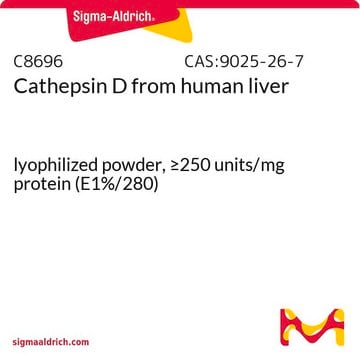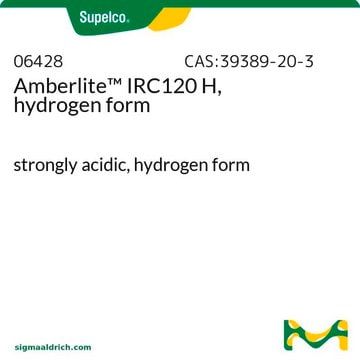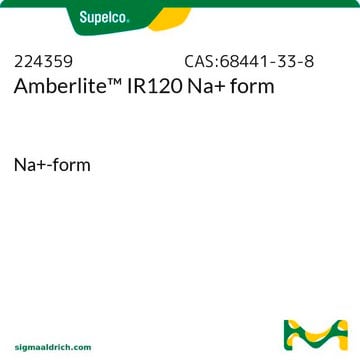F408
Ferrocene
98%
Synonym(s):
Bis(cyclopentadienyl)iron, Di(cyclopentadienyl)iron
About This Item
Recommended Products
vapor pressure
0.03 mmHg ( 40 °C)
Assay
98%
reaction suitability
core: iron
reagent type: catalyst
bp
249 °C (lit.)
mp
172-174 °C (lit.)
λmax
358 nm
storage temp.
2-8°C
SMILES string
[Fe].[CH]1[CH][CH][CH][CH]1.[CH]2[CH][CH][CH][CH]2
InChI
1S/2C5H5.Fe/c2*1-2-4-5-3-1;/h2*1-5H;
InChI key
DFRHTHSZMBROSH-UHFFFAOYSA-N
Looking for similar products? Visit Product Comparison Guide
Related Categories
Application
- As a scaffold for chiral ligands in asymmetric catalysis.
- In ferrocene-based electrolytes for dye sensitized solar cells applications.
- In the synthesis of unsymmetrical ferrocene ligands used as catalysts in cross-coupling, hydrogenation, allylic substitution, hydroformylation and aldol reactions.
- In the synthesis of two-dimensional hexagonally ordered mesoporous carbon (CMK-5) via chemical vapor deposition method, which is used as a catalyst support in oxidation of methanol.
- In the synthesis of molecular hybrids of ferrocene and fullerene (Bucky ferrocenes).
- In the preparation of ferrocenium salt which is used as a mild oxidant.
Signal Word
Danger
Hazard Statements
Precautionary Statements
Hazard Classifications
Acute Tox. 4 Inhalation - Acute Tox. 4 Oral - Aquatic Chronic 1 - Flam. Sol. 1 - Repr. 1B - STOT RE 2 Inhalation
Target Organs
Liver
Storage Class Code
4.1B - Flammable solid hazardous materials
WGK
WGK 2
Flash Point(F)
Not applicable
Flash Point(C)
Not applicable
Personal Protective Equipment
Certificates of Analysis (COA)
Search for Certificates of Analysis (COA) by entering the products Lot/Batch Number. Lot and Batch Numbers can be found on a product’s label following the words ‘Lot’ or ‘Batch’.
Already Own This Product?
Find documentation for the products that you have recently purchased in the Document Library.
Articles
Atomic layer deposition meets various needs including semiconductor device miniaturization and nanoparticle coating.
Atomic layer deposition meets various needs including semiconductor device miniaturization and nanoparticle coating.
Atomic layer deposition meets various needs including semiconductor device miniaturization and nanoparticle coating.
Atomic layer deposition meets various needs including semiconductor device miniaturization and nanoparticle coating.
Our team of scientists has experience in all areas of research including Life Science, Material Science, Chemical Synthesis, Chromatography, Analytical and many others.
Contact Technical Service











